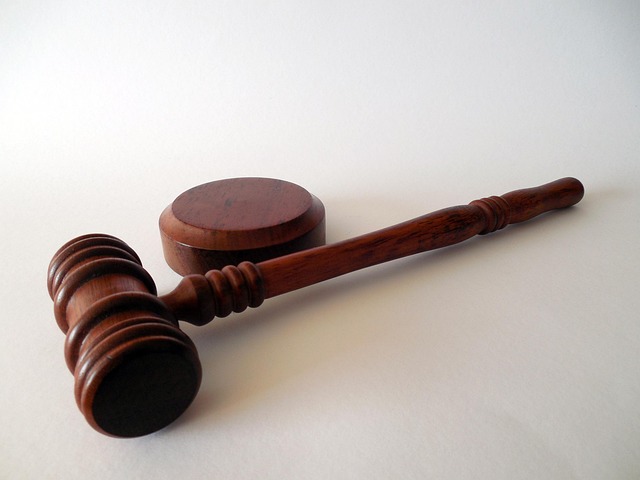Administrative and civil proceedings differ significantly in focus, process, and outcomes. Administrative actions enforce laws and regulations, often with penalties like fines or license revocations, while civil lawsuits resolve disputes between parties seeking compensation or specific performance. Key differences include the burden of proof (regulators vs. plaintiffs), potential penalties (fines vs. damages/incarceration), and evidentiary scope (streamlined vs. broad). Understanding these distinctions is crucial for individuals and businesses facing high-stakes cases, especially in white-collar defense, to secure appropriate legal representation and favorable outcomes.
In the realm of criminal law enforcement, understanding the nuances between administrative and civil proceedings is paramount. While both aim to resolve disputes, they operate under distinct principles and procedures. This article delves into the core differences between these two systems, highlighting their unique features, implications for accused individuals, and potential outcomes. By exploring these distinctions, we gain valuable insights into how each proceeding navigates consequences, offering a comprehensive guide for those navigating criminal justice systems.
- Understanding Administrative Law Enforcement
- Civil Proceedings: A Different Lens
- Key Distinctions Between Two Systems
- Impact on Accused and Potential Outcomes
- Navigating Consequences in Each Proceeding
Understanding Administrative Law Enforcement

Administrative Law Enforcement plays a crucial role in maintaining public safety and order, often serving as a first line of defense against criminal activities. Unlike Civil Proceedings, which focus on resolving disputes between individuals or organizations, Administrative actions are taken by government agencies to enforce laws and regulations. The key difference lies in the purpose and process; while civil lawsuits seek damages or specific performances, administrative proceedings aim to penalize or regulate entities for misconduct. This distinction is vital when considering high-stakes cases where clients face severe consequences, such as avoiding indictment or license revocation.
The unique nature of Administrative Law Enforcement requires specialized knowledge to navigate complex regulations and procedures. In many instances, agencies have broad discretion in investigating and prosecuting violations, making it essential for individuals and businesses to understand their rights and obligations. By grasping these differences between administrative and civil proceedings, one can better prepare for potential legal challenges, ensuring they receive adequate representation for their specific needs.
Civil Proceedings: A Different Lens

Civil proceedings differ significantly from administrative ones, particularly when it comes to the nature of disputes and the penalties involved. While administrative proceedings often focus on regulatory compliance and enforcement, civil cases revolve around resolving conflicts between individuals or entities seeking compensation or specific performance. This distinction is crucial when considering the unique aspects of each process.
In terms of differences between administrative and civil proceedings, one key factor is the burden of proof. In administrative matters, especially those involving white-collar and economic crimes, the onus is often on the government or regulatory body to demonstrate non-compliance. This can differ from civil cases where plaintiffs must present compelling evidence to support their claims. Additionally, civil lawsuits typically aim to compensate victims for losses, while administrative actions may result in fines or sanctions without necessarily focusing on redressing harm. Avoiding indictment is a strategy sometimes employed by corporate and individual clients in civil proceedings, as it offers an alternative path to resolve legal issues outside of criminal charges.
Key Distinctions Between Two Systems

The criminal justice system is often misunderstood, with two primary systems standing out: Administrative and Civil Proceedings. While both aim to uphold law and order, their key distinctions lie in purpose and process. Administrative proceedings focus on regulatory compliance and enforcement, often involving less serious offenses. These are typically handled by administrative agencies, emphasizing swift and efficient resolution, sometimes resulting in a complete dismissal of all charges for his clients. In contrast, Civil Proceedings deal with private disputes between individuals or entities, with the primary goal of compensating victims rather than punishing offenders.
Administrative actions tend to be more streamlined, with less emphasis on strict legal procedures, while Civil cases often mirror criminal trials, allowing for a broader range of evidence and consequences. These differences reflect the fundamental purpose divide: administrative systems cater to the needs of philanthropic and political communities, ensuring order through quick, internal remedies, whereas civil proceedings focus on individual rights and wrongs, seeking justice within a complex legal tapestry.
Impact on Accused and Potential Outcomes

The impact on an accused person and the potential outcomes can vary significantly when comparing administrative and civil proceedings. Administrative processes often involve government agencies and focus on regulatory compliance, with a primary goal to protect the public interest. As such, the burden of proof is generally lower than in criminal trials, where the state must prove guilt beyond a reasonable doubt. This difference can be crucial for accused individuals, especially in white-collar defense cases, as administrative proceedings may result in severe penalties without the same level of scrutiny as civil lawsuits.
The respective business of law enforcement agencies in administrative matters is to ensure fair practices and protect citizens from harm, which can lead to a broader range of potential outcomes. These may include fines, licensing suspensions, or even criminal charges for more severe infractions. In contrast, civil proceedings aim to provide redress for harm caused by an individual’s actions, with damages awarded to compensate victims. For his clients facing such situations, understanding the nuances between these processes and their respective business models is vital to navigating potential consequences and securing the best possible outcome.
Navigating Consequences in Each Proceeding

Navigating Consequences in Each Proceeding plays a crucial role in understanding the complexities of Criminal Law Enforcement. The process significantly diverges between administrative and civil proceedings, reflecting fundamental differences in their objectives and penalties. Administrative proceedings, often focused on regulatory compliance, may result in fines or license suspensions, with an emphasis on correcting non-criminal misconduct within specific industries. In contrast, civil proceedings involve private parties seeking damages for harm caused by criminal acts, where the consequences can range from monetary compensation to incarceration, depending on the severity of the crime.
These distinctions are further highlighted by the involvement of different entities and the nature of evidence presented. While administrative cases may be handled by regulatory bodies with a more streamlined process, civil suits often navigate complex legal landscapes within the courts. This dichotomy underscores the multifaceted approach to justice, where both administrative and civil proceedings contribute to maintaining order and accountability, serving respective business and philanthropic communities with their unique mandates.
In understanding the nuances of criminal law enforcement, it’s crucial to appreciate the significant differences between administrative and civil proceedings. These processes, though distinct, share the common goal of ensuring justice while protecting individual rights. By grasping the key distinctions outlined in this article—from procedural rules to potential outcomes—accused individuals can better navigate their legal options, ultimately fostering a fairer and more efficient criminal justice system.






